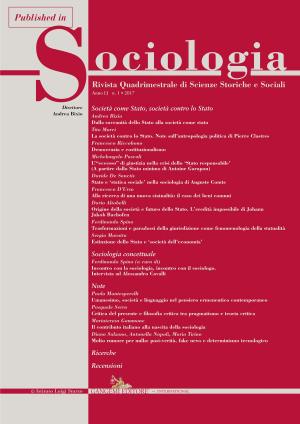The Deleterious Politics of Plutocracy
Published in Sociologia n. 3/2017 – Rivista quadrimestrale di Scienze Storiche e Sociali | A brief exploration of the decoupling of ethical and political life in America
Nonfiction, Social & Cultural Studies, Social Science, Sociology| Author: | Richard A. Cohen | ISBN: | 9788849249798 |
| Publisher: | Gangemi Editore | Publication: | July 19, 2018 |
| Imprint: | Gangemi Editore | Language: | English |
| Author: | Richard A. Cohen |
| ISBN: | 9788849249798 |
| Publisher: | Gangemi Editore |
| Publication: | July 19, 2018 |
| Imprint: | Gangemi Editore |
| Language: | English |
We must start with the recognition – officially hidden - that the political, traditionally thought of as the domain of power, has been displaced by the economic, specifically financial and monopoly capitalism, i.e., billionaires and multi-millionaires, as the base of power in today’s world. Democratic politics, therefore, must be unmasked (and overturned) as plutocracy, as rule by the rich, hard as this task evidently is. While capitalist nihilism – reduction of all values to money - is ideologically defended by neo-liberals, from the “left” it is allegedly radically criticized by the deviations of surrealism, postmodernism, deconstruction, and schizo-politics (Deleuze-Guattari). The present paper challenges the latter claim, exposing these alternatives for their dishonest Epicureanism which not only leaves the status-quo intact but mimics the powerful: George W. Bush fluent in the equivocations of deconstruction, President Trump a perfect instance of Deleuzean delirium. Kant’s distinction in “Perpetual Peace” (1795) between the “moral politician,” who aims for the common good, and the “political moralist,” lying opportunist for the wealthy, is enlisted to support this criticism. Countering the enduring Social Darwinist claim of the wealthy to special expertise in politics, the paper concludes with Aristotle’s argument in Politics that the least qualified candidate for political office is the business person – whether Perot, Romney, Berlusconi or Trump – because such a person is consumed by selfishness and greed.
We must start with the recognition – officially hidden - that the political, traditionally thought of as the domain of power, has been displaced by the economic, specifically financial and monopoly capitalism, i.e., billionaires and multi-millionaires, as the base of power in today’s world. Democratic politics, therefore, must be unmasked (and overturned) as plutocracy, as rule by the rich, hard as this task evidently is. While capitalist nihilism – reduction of all values to money - is ideologically defended by neo-liberals, from the “left” it is allegedly radically criticized by the deviations of surrealism, postmodernism, deconstruction, and schizo-politics (Deleuze-Guattari). The present paper challenges the latter claim, exposing these alternatives for their dishonest Epicureanism which not only leaves the status-quo intact but mimics the powerful: George W. Bush fluent in the equivocations of deconstruction, President Trump a perfect instance of Deleuzean delirium. Kant’s distinction in “Perpetual Peace” (1795) between the “moral politician,” who aims for the common good, and the “political moralist,” lying opportunist for the wealthy, is enlisted to support this criticism. Countering the enduring Social Darwinist claim of the wealthy to special expertise in politics, the paper concludes with Aristotle’s argument in Politics that the least qualified candidate for political office is the business person – whether Perot, Romney, Berlusconi or Trump – because such a person is consumed by selfishness and greed.















